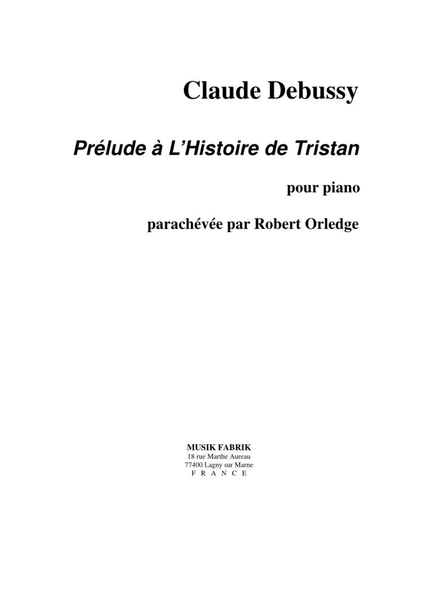Prelude a L'Histoire de Tristan
-
Ships in 4 to 6 weeks
Details
Description
SKU: FA.MFCD007PN
By Nicolas Horvath. By Claude Debussy and Robert Orledge. Rediscoverd Debussy. Classical, Impressionistic. Score. Musik Fabrik #MFCD007PN. Published by Musik Fabrik (FA.MFCD007PN).8.27 x 11.69 inches.
Debussy's friendship with the versatile poet and playwright Gabriel Mourey began in 1899, and in July 1907 Mourey offered Debussy a libretto based on Le roman de Tristan - Joseph Bedier's adaptation of a twelfth-century Breton romance by the Anglo-Norman poet known as Thomas - which had recently been published in Paris. Debussy enthusiastically outlined the four-act plot to Victor Segalen that October, and the main differences from Wagner's Tristan und Isolde are that none of the action takes place in Cornwall and that "Isolde of the White Hands" is found guilty of cuckolding King Marc with Tristan, who has to rescue her from the leper colony in which she is abandoned in Act 1. She also betrays him when he goes mad at the end.
The idea of a Tristan that restored its 'legendary character' and had no connections with Wagner, appealed to Debussy, who was extremely moved by the circumstances of Tristan's death. Even if he thought that Mourey's poetry was 'not very lyrical and many passages do not exactly "invite" music', he did work on the libretto and the music that summer and sent his publisher, Jacques Durand, 'one of the 363 themes for the "Roman de Tristan"' in a letter sent from Pourville on 23 August, 1907. The present prelude grows from this theme, together with the poignant Breton folksong "Le Faucon". After a short atmospheric introduction, Debussy's dance-like theme (which is definitely not a leitmotif) gradually gains momentum and after it reaches its ecstatic climax, representing the transient happiness of the lovers, it dissolves into an expressive coda and an elegiac close (all growing from Debussy's opening, off-stage trumpet calls), leaving us with the ultimate tragedy of their ill-fated affair.
Unfortunately, Mourey's actual libretto has been lost and the project eventually foundered because Bedier's cousin, Louis Artus, wanted Debussy to use the scenario he had prepared and copyrighted for the stage, and would not allow him to proceed with Mourey's version. Debussy, it need hardly be said, would never have dreamed of collaborating with the author of the vaudeville hit La culotte (The pants)!

 Share
Share